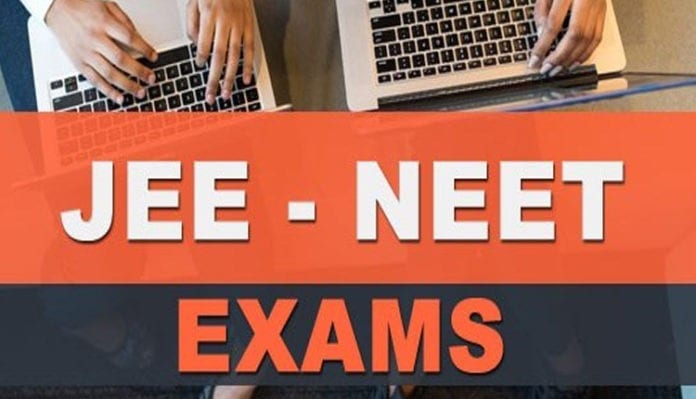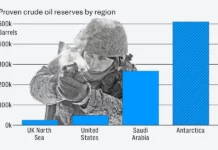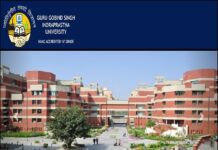Is NEET SS 2024 Cancelled?? Unraveling the Consequences and Calls for Reform The unprecedented cancellation of NEET SS 2024 has plunged the medical community into turmoil, raising fundamental questions about the integrity and efficacy of the examination process. As stakeholders grapple with the aftermath of this decision, it is imperative to delve deeper into the underlying issues and explore avenues for meaningful reform.

Table of Contents
Delving into Decision-Making Dynamics
The decision not to conduct NEET SS 2024 this year has ignited a firestorm of debate and speculation, with stakeholders seeking clarity on the factors driving this unprecedented move. While concerns about the timeline of admissions for MD/MS and DNB courses have been cited as rationale, questions linger about the transparency and inclusivity of the decision-making process. The lack of consultation with key stakeholders, including aspiring candidates and medical associations, has exacerbated tensions and fueled mistrust in the regulatory framework governing medical education. Moreover, the absence of a concrete plan for rescheduling the examination in the following year has left thousands of aspirants in limbo, unsure of their future prospects and career trajectories.
In light of these developments, there is an urgent need for greater accountability and transparency in the decision-making dynamics surrounding NEET SS. Stakeholders must be engaged in a meaningful dialogue to ensure that their concerns and perspectives are adequately addressed, and decisions are made in the best interests of the medical profession as a whole. Additionally, efforts should be made to streamline the examination schedule and minimize disruptions, thereby restoring confidence and trust in the examination process.
Unpacking Examination Pattern Predicaments
The scrutiny surrounding the examination pattern for NEET SS has brought to the forefront a myriad of challenges and complexities inherent in the assessment of medical specialists. The demand for a revised question format, particularly for specialties like DM Critical Care Medicine, underscores the need for a more tailored and nuanced approach to assessment to avoid getting NEET SS 2024 Cancelled. Candidates have raised legitimate concerns about the fairness and relevance of the current examination pattern, highlighting disparities in preparation and performance across different specialties. Moreover, the lack of alignment between the examination pattern and evolving trends in medical practice has raised questions about the efficacy and validity of the assessment process.
DU announces admission to B.Tech. courses without JEE
In response to these challenges, there is a growing consensus on the need for comprehensive reforms that address the underlying issues plaguing the examination pattern for NEET SS. This includes soliciting feedback and input from stakeholders to inform the development of a more robust and inclusive assessment framework. Additionally, efforts should be made to leverage technology and innovation to enhance the reliability and validity of the examination process, ensuring that it accurately reflects the competencies and skills required of aspiring medical specialists. By embracing a collaborative and evidence-based approach to reform, policymakers and regulatory bodies can lay the groundwork for a more equitable and effective examination system that upholds the highest standards of excellence in medical education.
Upholding Standards of Fairness and Equity
The cancellation of NEET SS 2024 has reignited discussions about the need to uphold standards of fairness and equity in medical education and examination processes. Amidst concerns about the potential disadvantage faced by candidates from certain backgrounds due to talk of getting NEET SS 2024 Cancelled, there is a pressing need to address systemic barriers and inequalities that hinder access to specialized medical training. This includes tackling issues related to socioeconomic status, geographical location, and educational resources, which can impact the preparedness and performance of aspiring candidates. Additionally, efforts should be made to diversify the pool of candidates and promote inclusivity within the medical profession, ensuring that opportunities for advancement are accessible to all.

To achieve these objectives, policymakers and regulatory bodies must take proactive measures to address the root causes of inequity and discrimination within the medical education system. This includes implementing targeted interventions such as scholarships, mentorship programs, and support services to mitigate barriers to entry and facilitate the participation of underrepresented groups. Furthermore, ongoing monitoring and evaluation mechanisms should be put in place to assess the impact of these interventions and identify areas for improvement. By fostering a culture of inclusivity and equity, stakeholders can create a more vibrant and diverse medical workforce that reflects the rich tapestry of Indian society.
Fostering Innovation and Adaptability
The cancellation of NEET SS 2024 has underscored the need for greater innovation and adaptability in the design and delivery of medical examinations. As the healthcare landscape continues to evolve, so too must the assessment methods used to evaluate the competency and readiness of aspiring medical specialists. This requires a shift away from traditional, one-size-fits-all approaches towards more dynamic and contextually relevant assessment frameworks that capture the multidimensional nature of medical practice.
In this regard, stakeholders should explore innovative approaches such as competency-based assessment, simulation-based testing, and interdisciplinary evaluations to provide a more holistic and authentic representation of candidates’ skills and abilities. By embracing technology and leveraging advances in assessment science, policymakers and regulatory bodies can create more robust and adaptable examination systems that align with the evolving needs of the medical profession. Moreover, efforts should be made to promote lifelong learning and professional development among medical practitioners, ensuring that they remain abreast of the latest advancements and best practices in their respective fields.
SSC CHSL 2024 Details: A Complete Guide for Aspiring Candidates
Conclusion
In conclusion, the cancellation of NEET SS 2024 has sparked a critical reflection on the state of medical education and examination processes in India. The revelations and discussions stemming from this unprecedented decision have highlighted the urgent need for systemic reforms that prioritize transparency, fairness, and inclusivity. As stakeholders navigate the complexities and challenges ahead, it is imperative that they work together to forge a path forward that upholds the highest standards of excellence and equity in medical education. By embracing innovation, fostering collaboration, and championing the principles of fairness and equity, the medical community can pave the way for a brighter and more promising future for aspiring medical specialists across the nation.













